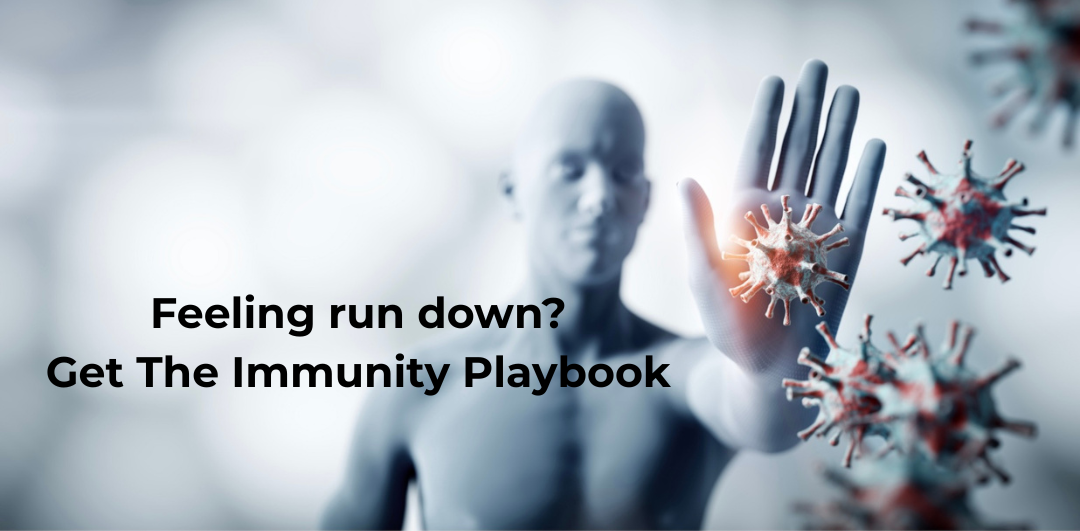A Functional Medicine Approach to Supporting Teen Mental Health
Jul 08, 2025
As a parent, watching your teenager struggle with anxiety, depression, or unpredictable mood swings can feel overwhelming and heartbreaking. The statistics are sobering: teen mental health challenges have reached unprecedented levels, with anxiety and depression rates climbing year after year. Traditional approaches often focus solely on managing symptoms through medication or therapy. These approaches can be helpful, but they might miss a crucial underlying factor (or many more).
What if I told you there's a powerful connection between your teen's digestive system and their mental health that's been largely overlooked?
The gut-brain connection represents a revolutionary understanding of how our bodies work as interconnected systems. If your teen's gut is out of balance, their brain is likely paying the price. Before you dismiss this as alternative thinking, please reconsider. This has been studied extensively and is backed by solid science. The improvements families see when addressing the gut-brain connection can be remarkable, translating to real hope for families seeking answers beyond conventional treatments.
The Gut-Brain Connection Explained
The gut-brain axis is essentially a two-way highway of communication between your digestive system and your brain. This intricate network involves the vagus nerve, immune system, and an entire ecosystem of bacteria living in the intestines called the microbiome. And (this is important to keep note of!) approximately 90% of serotonin (the neurotransmitter responsible for mood regulation and feelings of well-being) is produced in the gut, NOT the brain.
If you think of the gut as a second brain, you’ll realize that a disruption of this delicate balance of gut bacteria can trigger inflammation throughout the body that leads to emotional and cognitive dysfunction in the brain. The disruption can affect neurotransmitter production, which then can manifest as depression, irritability, anxiety, brain fog, and difficulty concentrating.
The microbiome is also vitally important for regulating the stress response system. When beneficial bacteria are depleted and harmful bacteria proliferate, it can create a state of chronic low-grade inflammation that keeps the body in a perpetual stress mode, making teens more susceptible to mood disorders and less resilient to daily challenges.
Teens Are Especially Vulnerable
Being a teenager isn’t easy at the best of times! Teenagers face a perfect storm of factors that can disrupt their gut health (which, in turn, affects their mental well-being). The combination of academic pressure, social media usage, inconsistent sleep patterns, and the natural hormonal fluctuations of adolescence all contribute to chronic stress, which directly impacts gut function and bacterial balance.
Add to that the fact that modern teenage diets are often heavy in the processed foods, sugar, and artificial additives departments, all of which feed harmful bacteria while starving beneficial ones. By the time people hit their teens, many have also been exposed to multiple rounds of antibiotics, which can wipe out protective bacteria and create long-lasting imbalances in the microbiome.
Hormonal shifts during puberty add more challenges to the mix - these changes can affect everything from digestion to inflammation levels to neurotransmitter production.
In addition, constant connectivity and heavy reliance on social media create additional sources of stress that are underestimated way too often. This chronic state of stress disrupts the gut-brain axis, creating a vicious cycle where poor gut health contributes to mood instability, which then generates more stress and further gut disruption.
Unfortunately, symptoms such as mood struggles, digestive complaints, or behavioral changes are often dismissed as "normal teenage behavior" or attributed solely to hormones, missing the opportunity to address underlying gut dysfunction.
The Functional Medicine Approach
Functional medicine takes a fundamentally different approach than traditional medicine, asking "why" instead of just "what." Instead of simply treating symptoms, it relies on a “root cause” approach that uses comprehensive testing and individualized treatment plans to investigate and treat the underlying causes of mental health struggles. Once causes are identified, we can then focus on healing the underlying dysfunction that's creating the symptoms in the first place. It boils down to "test, don’t guess", and that’s where functional labs come into play.
Functional lab tests provide a clear roadmap for targeted interventions. They reveal specific gut imbalances, including bacterial overgrowth, yeast overgrowth, parasites, inflammation markers, and nutrient deficiencies that may be contributing to mood disorders (issues that traditional testing often misses).
Functional medicine also subscribes to bio-individuality in treatment because it is targeted and unique to each individual. We’ve discussed bio-individuality before, but it deserves mentioning again here because it is very effective. Using bio-individuality as a roadmap means implementing personalized nutrition protocols, lifestyle modifications, and targeted supplementation. This might include:
- Probiotics
- Anti-inflammatory foods
- Stress management techniques
- Nutrients geared to support neurotransmitter production
Real Transformation is Possible: Charting a Path Forward
The good news? You don't have to feel helpless or hopeless—there's a path forward that addresses the whole person, not just isolated symptoms. When root causes are properly identified and treated, it’s amazing the changes that come about in your teenager: mood stabilization, clearer thinking, improved sleep quality, better stress resilience, and an overall sense of feeling more like themselves again. Many teens even report feeling more emotionally balanced and better able to handle the normal stresses of adolescent life.
By supporting your teenager's gut health, you're giving their brain the foundation it needs to function optimally and supporting their overall well-being in a profound way. I can help you on this journey! Read Joy’s story to learn about a teen I worked with who was struggling with everything from headaches and sleeplessness to brain fog, anxiety, depression, and excruciatingly painful menstrual cycles. We began working together to find out what was causing her distress and, after careful testing and implementing a protocol that addressed the results we found, her health and well-being improved dramatically. The transformative impact of functional medicine and the power of personalized care is real.
If your teen is struggling and you feel like you’ve tried everything to no avail, reach out to me and let’s talk. Your teen deserves to thrive—and it starts in the gut!


